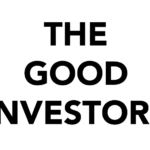Hi, this is an excellent question and I'm glad you asked it. I started investing late and seeing how you're intelligent enough to be thinking about investing, I know you can avoid my stupid mistake.
Simply put, unless you are born into a severely wealthy family, and your estate value stands the test of time and inflation (e.g. born into an inheritance of $1 billion), investing is a very good choice and is probably the only way that you will be able to retire.
Simple comparison: your money in your bank account grows at 0.05% per year. Inflation is around 2-3% per year (ball-park figure). Your money is basically depreciating in your bank account. Just because something is happening so gradually that you don't notice it, doesn't mean it isn't happening.
To maximise your investments, you should understand the concepts of cash drag and compound interest.
Cash drag. Cash that sits in your bank is just chilling/slacking and not doing anything. If you invested 10% of your cash, and you got a 10% return on that investment, you'd only make a profit of 1% on your entire net worth. The implication? Invest as much of your cash as possible (i.e. whatever you don't need to pay bills, mortgage, etc) in order to maximise your total returns.
Compound interest is money that you get without working for it.
If you invest $100 at a 5% return, you get $5 for free. The next year, you are getting 5% returns on $105, not your original $100 investment. You gained $5.25 the second year, not $5. In the third year, you gained $5.2625, not $5.
Yes, it's slow going at first. But by the 15th year, your $100 will have turned into about $207. A simple interest of 5% or $5 a year would only give you $175 at the end of 15 years. This is just an illustration but it shows the power of compound interest. It also shows that the returns take time to multiply, hence, you should start early to get into the exponential returns zone ASAP.
Finally, concerning the safety of investments, it's important to read up widely, get financial advice and understand what you're investing in before you actually invest. A lot of people don't like the idea of consulting a professional financial advisor - but if you wouldnt let anyone other than a trained surgeon (at least 10 years of school and training) cut open your abdomen, why wouldn't you consult a professional when it comes to your hard-earned money?
I'm not a finance professional myself but I believe the industry was created for a reason...
Hope this helps.









Hi, this is an excellent question and I'm glad you asked it. I started investing late and seeing how you're intelligent enough to be thinking about investing, I know you can avoid my stupid mistake.
Simply put, unless you are born into a severely wealthy family, and your estate value stands the test of time and inflation (e.g. born into an inheritance of $1 billion), investing is a very good choice and is probably the only way that you will be able to retire.
Simple comparison: your money in your bank account grows at 0.05% per year. Inflation is around 2-3% per year (ball-park figure). Your money is basically depreciating in your bank account. Just because something is happening so gradually that you don't notice it, doesn't mean it isn't happening.
To maximise your investments, you should understand the concepts of cash drag and compound interest.
Cash drag. Cash that sits in your bank is just chilling/slacking and not doing anything. If you invested 10% of your cash, and you got a 10% return on that investment, you'd only make a profit of 1% on your entire net worth. The implication? Invest as much of your cash as possible (i.e. whatever you don't need to pay bills, mortgage, etc) in order to maximise your total returns.
Compound interest is money that you get without working for it.
If you invest $100 at a 5% return, you get $5 for free. The next year, you are getting 5% returns on $105, not your original $100 investment. You gained $5.25 the second year, not $5. In the third year, you gained $5.2625, not $5.
Yes, it's slow going at first. But by the 15th year, your $100 will have turned into about $207. A simple interest of 5% or $5 a year would only give you $175 at the end of 15 years. This is just an illustration but it shows the power of compound interest. It also shows that the returns take time to multiply, hence, you should start early to get into the exponential returns zone ASAP.
Finally, concerning the safety of investments, it's important to read up widely, get financial advice and understand what you're investing in before you actually invest. A lot of people don't like the idea of consulting a professional financial advisor - but if you wouldnt let anyone other than a trained surgeon (at least 10 years of school and training) cut open your abdomen, why wouldn't you consult a professional when it comes to your hard-earned money?
I'm not a finance professional myself but I believe the industry was created for a reason...
Hope this helps.